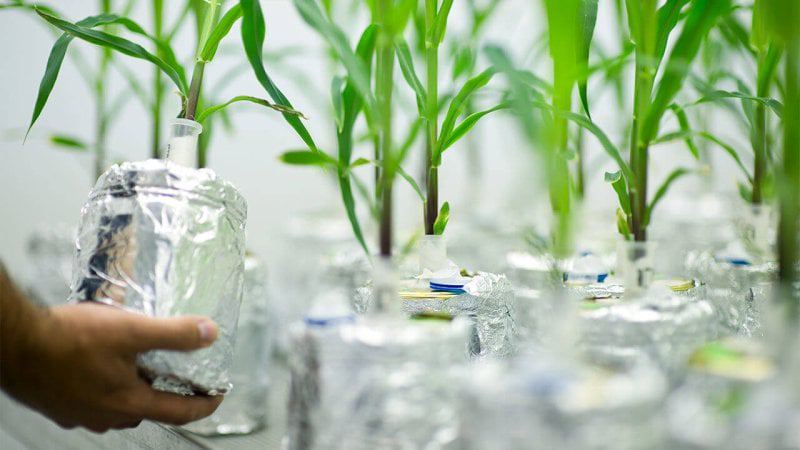Viewpoint: Farming one of the ‘most inefficient industries.’ The CRISPR revolution could change that
Viewpoint: Farming one of the ‘most inefficient industries.’ The CRISPR revolution could change that


Agriculture is one of the most inefficient industries on the planet. Current industrial farming methods demand unsustainable amounts of water, fertilizer, and land. This demand will only intensify as our global population climbs towards 10 billion by 2050. To sustainably feed our world, we need a second agricultural revolution.
It’s no surprise to find synthetic biology leading this revolution. To disrupt and transform old industries, we need to work with nature, not against it. That’s the philosophy behind Inari, one of the newest companies reimagining the agricultural space. Inari is leveraging the gene-editing technology CRISPR to build the world’s first Seed Foundry™. We spoke with Ponsi Trivisvavet, CEO and director of Inari, about the company’s process and vision for the future of agriculture.
The genomic diversity of plants is central to Inari’s mission. In order to produce crops optimized for a wide range of climates, altitudes, and soils, the company needs a catalog with as many options as possible. “We use diverse tools that are true to nature in order to bring biodiversity back into crops, and this allows crops to actually have better productivity,” says Trivisvavet. Certain crop phenotypes require less water or utilize fertilizer more efficiently. Reintroducing these crop varieties back into the field can reduce cost burdens on farmers and dramatically improve soil health.
Read the original post

 | Videos | More... |

Video: Nuclear energy will destroy us? Global warming is an existential threat? Chemicals are massacring bees? Donate to the Green Industrial Complex!
 | Bees & Pollinators | More... |

GLP podcast: Science journalism is a mess. Here’s how to fix it

Mosquito massacre: Can we safely tackle malaria with a CRISPR gene drive?

Are we facing an ‘Insect Apocalypse’ caused by ‘intensive, industrial’ farming and agricultural chemicals? The media say yes; Science says ‘no’
 | Infographics | More... |

Infographic: Global regulatory and health research agencies on whether glyphosate causes cancer
 | GMO FAQs | More... |

Why is there controversy over GMO foods but not GMO drugs?

How are GMOs labeled around the world?

How does genetic engineering differ from conventional breeding?
 | GLP Profiles | More... |

Alex Jones: Right-wing conspiracy theorist stokes fear of GMOs, pesticides to sell ‘health supplements’




 Trust issues: What happens when therapists use ChatGPT?
Trust issues: What happens when therapists use ChatGPT? California, Washington, Oregon forge immunization alliance to safeguard vaccine access against federal undermining
California, Washington, Oregon forge immunization alliance to safeguard vaccine access against federal undermining Fighting deforestation with CO2: Biotechnology breakthrough creates sustainable palm oil alternative for cosmetics
Fighting deforestation with CO2: Biotechnology breakthrough creates sustainable palm oil alternative for cosmetics Viewpoint — Fact checking MAHA mythmakers: How wellness influencers and RFK, Jr. undermine American science and health
Viewpoint — Fact checking MAHA mythmakers: How wellness influencers and RFK, Jr. undermine American science and health 30-year-old tomato line shows genetic resistance to devastating virus
30-year-old tomato line shows genetic resistance to devastating virus The free-range chicken dilemma: Better for birds, but with substantial costs
The free-range chicken dilemma: Better for birds, but with substantial costs Viewpoint: Video — Big Solar is gobbling up productive agricultural land and hurting farmers yet providing little energy or sustainabilty gains
Viewpoint: Video — Big Solar is gobbling up productive agricultural land and hurting farmers yet providing little energy or sustainabilty gains ‘You have to treat the brain first’:Rethinking chronic pain with Sanjay Gupta
‘You have to treat the brain first’:Rethinking chronic pain with Sanjay Gupta
